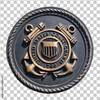Ship Safety: IMO Committee Agree Draft IGF Code
IMO informs that the draft International Code of Safety for Ships using Gases or other Low flashpoint Fuels (IGF Code), along with proposed amendments to make the Code mandatory under SOLAS, have been agreed by the inaugural session of the Sub-Committee on Carriage of Cargoes and Containers (CCC 1).
The basic philosophy of the IGF Code is to provide mandatory provisions for the arrangement, installation, control and monitoring of machinery, equipment and systems using low flashpoint fuels, such as liquefied natural gas (LNG), to minimize the risk to the ship, its crew and the environment, having regard to the nature of the fuels involved.
The Code addresses all areas that need special consideration for the usage of low flashpoint fuels, based on a goal-based approach, with goals and functional requirements specified for each section forming the basis for the design, construction and operation of ships using this type of fuel.
It was agreed that the new IGF Code should apply to new ships and to existing ships converting from the use of conventional oil fuel to the use of gases or other low-flashpoint fuels, on or after the date of entry into force of the Code. The IGF Code would not apply to cargo ships of less than 500 gross tonnage, but the provisions of the IGF Code could be applied to such ships on a voluntary basis, based on national legislation.
The draft SOLAS amendments along with the draft IGF Code, will be submitted to the parent body, the Maritime Safety Committee, at its ninety-fourth session (MSC 94, 17 to 21 November 2014), for approval with a view to subsequent adoption.
The draft amendments include a new Part G in SOLAS chapter II-1 (Construction – Subdivision and stability, machinery and electrical installations) related to ships using low-flashpoint fuels, requiring such ships to comply with the IGF Code; and related amendments to SOLAS chapter II-2 (Fire protection, fire detection and fire extinction), covering to the use of fuel with a low flashpoint. Further draft amendments would update the form of safety certificates, to include reference to the new Part G.
Since the draft IGF Code focuses, as a first step, on the specific requirements for ships using LNG as fuel, the Sub-Committee also agreed a work plan for the next phase of development of the IGF Code, to take account of the need to consider future proposals for the use of additional fuels for inclusion in the Code.
The IGF Correspondence Group was re-established to: further develop guidelines for ships using ethyl or methyl alcohol as fuel; further develop measures for fuel cells for inclusion in the IGF Code as and when appropriate; further develop measures for ships using low-flashpoint diesel oil for inclusion in the IGF Code as and when appropriate; and submit a report to CCC 2 (scheduled to meet in September 2015).
Other matters considered by the sub-committee are at: http://bit.ly/YQDJZA













